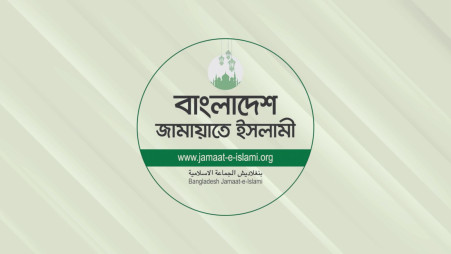Jammat postpones tomorrow’s sit-in programme, Ameer's 'voluntary arrest' demanding Azharul's release as situation volatile
"Considering the overall situation in the country, the public sit-in programme announced by Bangladesh Jamaat-e-Islami on 25 February in front of the office of the chief advisor has been postponed for the time being,” Golam Parwar said

Amid the ongoing volatile situation across the country, the Bangladesh Jamaat-e-Islami has postponed tomorrow's planned mass sit-in programme in front of the Chief Adviser's Office and a voluntary arrest of its Ameer Shafiqur Rahman, demanding the release of the party's former secretary general Azharul Islam from jail.
"Considering the overall situation in the country, the public sit-in programme announced by Bangladesh Jamaat-e-Islami on 25 February in front of the office of the chief advisor has been postponed for the time being," Jamaat Secretary General Golam Parwar said in a statement issued today (24 February).
"In response to the request of senior leaders of Jamaat-e-Islami, Ameer Shafiqur Rahman has also agreed to postpone his voluntary arrest programme for the time being," the statement added.
Earlier on 20 February, Jamaat Ameer Shafiqur said his party has given sufficient time to the government to grant the unconditional release of its former acting secretary general ATM Azharul Islam, yet he remains in jail.
"It is absolutely not possible for me to stay outside while he [Azharul] remains in prison. We have given the government enough time [to grant his release]," Shafiqur wrote on his verified Facebook profile this evening.
"In protest of this oppression and demanding the release of ATM Azharul Islam, I will be present at the court premises on 25 February to be arrested myself.
"The ministries of law and home affairs will take measures to arrest me and send me to prison. You will find me in the right place on time, Insha Allah," he said.
Azharul was sentenced to death in 2014 during the Awami League regime for committing rapes, murders and genocide during the country's 1971 Liberation War.
The party rejected the sentence, saying it was controversial and questionable.



 Keep updated, follow The Business Standard's Google news channel
Keep updated, follow The Business Standard's Google news channel
















